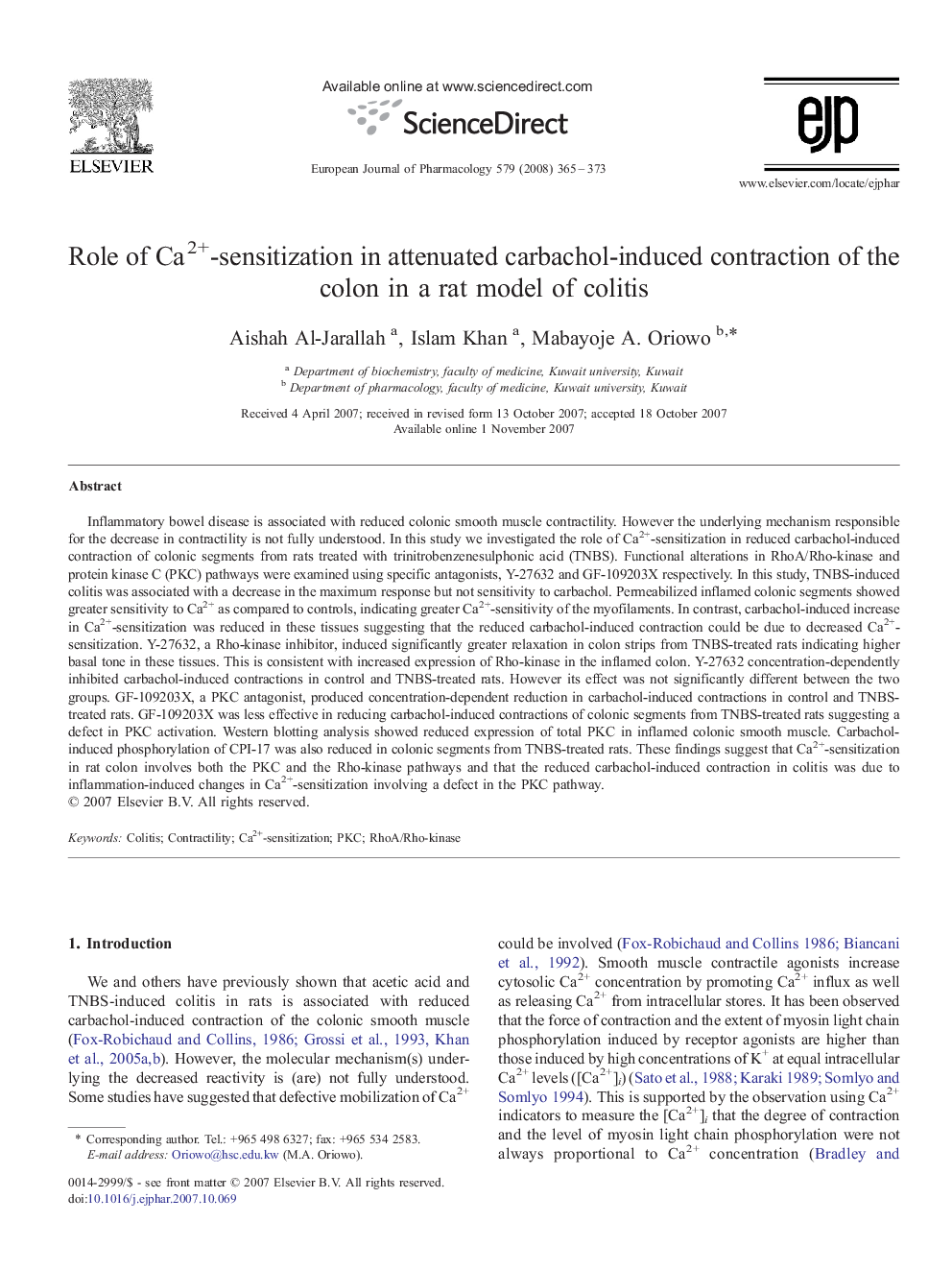| Article ID | Journal | Published Year | Pages | File Type |
|---|---|---|---|---|
| 2535575 | European Journal of Pharmacology | 2008 | 9 Pages |
Abstract
Inflammatory bowel disease is associated with reduced colonic smooth muscle contractility. However the underlying mechanism responsible for the decrease in contractility is not fully understood. In this study we investigated the role of Ca2+-sensitization in reduced carbachol-induced contraction of colonic segments from rats treated with trinitrobenzenesulphonic acid (TNBS). Functional alterations in RhoA/Rho-kinase and protein kinase C (PKC) pathways were examined using specific antagonists, Y-27632 and GF-109203X respectively. In this study, TNBS-induced colitis was associated with a decrease in the maximum response but not sensitivity to carbachol. Permeabilized inflamed colonic segments showed greater sensitivity to Ca2+ as compared to controls, indicating greater Ca2+-sensitivity of the myofilaments. In contrast, carbachol-induced increase in Ca2+-sensitization was reduced in these tissues suggesting that the reduced carbachol-induced contraction could be due to decreased Ca2+-sensitization. Y-27632, a Rho-kinase inhibitor, induced significantly greater relaxation in colon strips from TNBS-treated rats indicating higher basal tone in these tissues. This is consistent with increased expression of Rho-kinase in the inflamed colon. Y-27632 concentration-dependently inhibited carbachol-induced contractions in control and TNBS-treated rats. However its effect was not significantly different between the two groups. GF-109203X, a PKC antagonist, produced concentration-dependent reduction in carbachol-induced contractions in control and TNBS-treated rats. GF-109203X was less effective in reducing carbachol-induced contractions of colonic segments from TNBS-treated rats suggesting a defect in PKC activation. Western blotting analysis showed reduced expression of total PKC in inflamed colonic smooth muscle. Carbachol-induced phosphorylation of CPI-17 was also reduced in colonic segments from TNBS-treated rats. These findings suggest that Ca2+-sensitization in rat colon involves both the PKC and the Rho-kinase pathways and that the reduced carbachol-induced contraction in colitis was due to inflammation-induced changes in Ca2+-sensitization involving a defect in the PKC pathway.
Related Topics
Life Sciences
Neuroscience
Cellular and Molecular Neuroscience
Authors
Aishah Al-Jarallah, Islam Khan, Mabayoje A. Oriowo,
